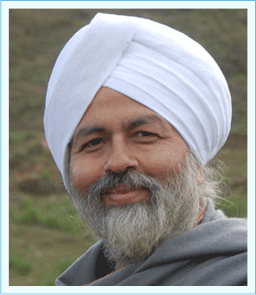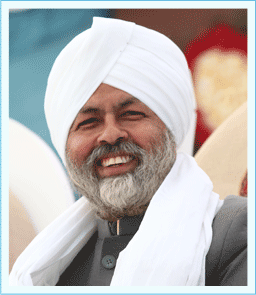One Should Not Be Proud Of One's Beauty Or Wealth
 Do not laugh at poor. Do not feel happy at his plight or reprimand him. No one knows what is going to happen tomorrow. In today's time of uncertainty we are witnessing examples of people investing in stock market in a hope to become millionaires. They get elated when the value of their stocks reach at peak level but the next morning they set to hear that the stock market had crashed. Now the same person says; "How shall I survive; I am under debts, should I commit suicide." So one cannot predict as to what is in store the next moment. If a poor person visit a rich person, the latter turns his back towards the former. The rich person is so much proud of his wealth that he does not like to look at the face of the poor man. The holy men say that human body is not forever. The way a serpent sheds its skin, in a similar manner when the soul departs, the body shall be left behind. So, it is suggested that one should not be proud of one's palatial residence in comparison to the hut of a poor man. Irrespective of one's place of dwelling, when one's body turns into ashes and mixes with the dust on the earth, the same people whom one has rebuked shall be walking over it. Saint Farid ji says that beautiful eyes that once captivated others and could not bear the pain of even an eyeliner, lie on earth unclaimed after the death and birds are laying eggs on the skeleton of the eyes. This does not mean that beauty is not to be appreciated. God's creation must be valued, but one should not be proud of one's beauty, wealth, official status or caste.
Do not laugh at poor. Do not feel happy at his plight or reprimand him. No one knows what is going to happen tomorrow. In today's time of uncertainty we are witnessing examples of people investing in stock market in a hope to become millionaires. They get elated when the value of their stocks reach at peak level but the next morning they set to hear that the stock market had crashed. Now the same person says; "How shall I survive; I am under debts, should I commit suicide." So one cannot predict as to what is in store the next moment. If a poor person visit a rich person, the latter turns his back towards the former. The rich person is so much proud of his wealth that he does not like to look at the face of the poor man. The holy men say that human body is not forever. The way a serpent sheds its skin, in a similar manner when the soul departs, the body shall be left behind. So, it is suggested that one should not be proud of one's palatial residence in comparison to the hut of a poor man. Irrespective of one's place of dwelling, when one's body turns into ashes and mixes with the dust on the earth, the same people whom one has rebuked shall be walking over it. Saint Farid ji says that beautiful eyes that once captivated others and could not bear the pain of even an eyeliner, lie on earth unclaimed after the death and birds are laying eggs on the skeleton of the eyes. This does not mean that beauty is not to be appreciated. God's creation must be valued, but one should not be proud of one's beauty, wealth, official status or caste.The Soul Dwells In Each Entity
 Soul is not related to any particular language, complexion, gender and age. Similarly there is no relevance of boundaries of states or countries. All these are meaningless for the soul because the soul is a constituent of the One who does not belong to any particular caste, community, race or nationality, nor has a religion, frontier nor boundary. The soul dwells in each entity and is related to One or God alone. And on realizing God the devotees are praising God. Since the devotees have realized God, they address God as 'You'. We use 'you' for a person who is standing right before us. To the one who is right before us, we never address him as 'he' or 'that'. It is really strange that for a person who is standing right before us, instead of addressing him as 'you', we address him as 'he' as if he is in England or America. The very use of the word 'he' means absence of the person from the scene. Here while remembering God, we say: "Thou art Formless" and address God as 'You'. Holy beings have also addressed God as 'You'. The devotees behold God face to face. In others words, they have known God.
Soul is not related to any particular language, complexion, gender and age. Similarly there is no relevance of boundaries of states or countries. All these are meaningless for the soul because the soul is a constituent of the One who does not belong to any particular caste, community, race or nationality, nor has a religion, frontier nor boundary. The soul dwells in each entity and is related to One or God alone. And on realizing God the devotees are praising God. Since the devotees have realized God, they address God as 'You'. We use 'you' for a person who is standing right before us. To the one who is right before us, we never address him as 'he' or 'that'. It is really strange that for a person who is standing right before us, instead of addressing him as 'you', we address him as 'he' as if he is in England or America. The very use of the word 'he' means absence of the person from the scene. Here while remembering God, we say: "Thou art Formless" and address God as 'You'. Holy beings have also addressed God as 'You'. The devotees behold God face to face. In others words, they have known God.